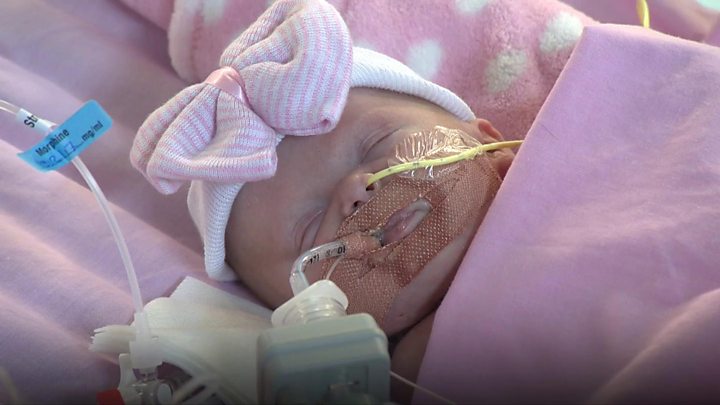Breakthroughs put diseases on the back foot

It has been a remarkable year of promise in medical science.
Incurable diseases from sickle cell to haemophilia now look as though they can be treated. Here are the highlights.
Huntington's
The defect that causes the devastating degenerative disease Huntington's has been corrected in patients for the first time.
It has been called the biggest breakthrough in neurodegenerative diseases for 50 years.
The disease is caused by an aberration in a section of DNA called the huntingtin gene.
The error corrupts a healthy protein and turns it into a killer of brain cells.
The therapy silences the gene by blocking the messages it sends to the cell's protein-making factories.
The study has generated a huge amount of excitement. It could be the first treatment to slow or prevent any degenerative brain disease.
Huntington’s breakthrough may stop disease
New skin
Hassan has been given a new genetically modified skin that covers 80% of his body.
He was born with a genetic disease called junctional epidermolysis bullosa that leaves his skin as fragile as a butterfly's wings.
A piece of his skin was taken, its DNA was repaired in the laboratory and the modified skin grafted back on.
After nearly two years, the new skin appears completely normal.
'Butterfly child' given life-saving skin
Haemophilia
Media playback is unsupported on your device
Doctors say they have achieved "mind-blowing" results in an attempt to rid people of haemophilia A.
The disease is caused by a genetic defect that means they do not produce a protein needed to stop bleeding.
Thirteen patients, including Jake Omer, were given the gene therapy at Barts Health NHS Trust.
All are now off treatment with 11 producing near-normal levels of the protein.
Haemophilia A trial results 'mind-blowing'
Heart

Media playback is unsupported on your device
Vanellope Hope Wilkins survived being born with her heart outside her body after surgery at Glenfield Hospital in Leicester.
The condition, ectopia cordis, is extremely rare, with only a few cases per million births, of which most are stillborn.
She has had three operations to place her heart back in her chest.
The hospital says it knows of no other case in the UK where the baby has survived.
Baby has heart put back inside chest
Sickle cell gone
A French teenager's sickle cell disease was reversed using a pioneering treatment to change his DNA.
Blood cells should be round, but in the disease they become deformed and lock together to block the flow of blood around the body.
Scientists altered the genetic instructions in his bone marrow so it made healthy red blood cells.
So far, the therapy has worked for 15 months and the child is no longer on any medication.
The world-first procedure at Necker Children's Hospital in Paris offers hope to millions of people with the blood disorder.
Teenager's sickle cell reversed with world-first therapy
Type 2 diabetes halved
Nearly half of patients have reversed type 2 diabetes in a "watershed" trial, say doctors in Newcastle and Glasgow.
People, including Isobel Murray, spent up to five months on a low-calorie diet of soups and shakes to trigger massive weight loss.
The more weight people lost the more likely they were to put their disease into remission.
The charity Diabetes UK says the trial was a landmark and had the potential to help millions of patients.
'I beat type 2 diabetes with 200-calorie drinks'
Embryos edited
Scientists have, for the first time, successfully freed embryos of a piece of faulty DNA that causes deadly heart disease to run in families.
It potentially opens the door to preventing 10,000 disorders that are passed down the generations.
The US and South Korean team allowed the embryos to develop for five days before stopping the experiment.
A gene editing technology called Crispr was used to make precise changes to the genetic code.
Its applications in medicine are vast and include the idea of wiping out genetic faults that cause diseases from cystic fibrosis to breast cancer.
Human embryos edited to stop disease
In other news
Precise "chemical surgery" has been performed on human embryos to remove disease in a world first by Chinese researchers.
Premature lambs have been kept alive for weeks using an artificial womb that looks like a plastic bag raising hopes for new ways of caring for prem babies.
Why some people become enraged by sounds such as eating or breathing has been explained by brain scan studies.
It takes between one and 10 genetic changes or mutations to turn a healthy cell into a cancer.
Oral sex is producing dangerous gonorrhoea and a decline in condom use is helping it to spread.
Wounds heal more quickly if they occur during the day rather than after dark.
Embryos that are less than 0.001% human – and the rest pig – have been made and analysed by scientists.
Every year spent in education adds an average of 11 months to people's lifespan.
Men who delay starting a family are more likely to have geekier sons.
What really happens when we make and store memories has been unravelled in a discovery that surprised even the scientists who made it.
[contf] [contfnew] 
BBC
[contfnewc] [contfnewc]
The post Breakthroughs put diseases on the back foot appeared first on News Wire Now.

















